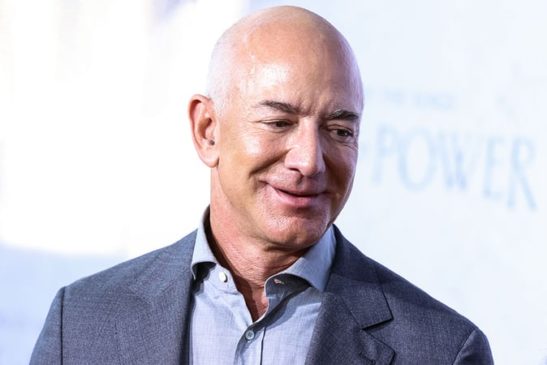Meanwhile, Oxfam revealed that across 52 countries, the average real wages of nearly 800 million workers have fallen, resulting in a combined loss of $1.5 trillion over the last two years.
According to a new report by Oxfam, a global organization dedicated to combating inequality and ending poverty, the combined wealth of the world’s top five wealthiest men has more than doubled from $405 billion in March 2020 to $869 billion in November 2023. The report was published on January 15, just on the day when the World Economic Forum Annual Meeting in Davos began.
The top five wealthiest men in the world include prominent figures like Tesla and SpaceX CEO Elon Musk, Bernard Arnault, the CEO of the world’s largest luxury goods company LVMH Moet Hennessy Louis Vuitton, and Amazon founder Jeff Bezos.
Corporate Leadership and Financial Disparities
The report, based on data from Forbes and Wealth X, also sheds light on trends in corporate leadership. Oxfam found that in addition to substantial wealth increases among the top five billionaires, seven of the world’s ten largest companies are currently led by billionaires serving as CEOs or principal shareholders.
Furthermore, the research revealed that the wealthiest 1% of the global population commands a 43% share of financial assets worldwide. This includes ownership of publicly traded instruments like stocks, bonds, and stakes in privately held enterprises.
The report also drew attention to the financial success of major global companies, revealing that the combined net profit of 148 such corporate entities surged by an astounding 52% in the year leading up to June 2023. This surge, compared to their average earnings between 2018 and 2021, raises concerns about the growing economic divide.
Trillionaires on the Horizon
Oxfam has warned that if current trends persist, the world may witness its first trillionaire within a decade, but eliminating poverty could take another 229 years.
Despite extreme poverty remaining higher in the poorest countries than pre-pandemic levels, a small group of immensely wealthy individuals are in a race to potentially become the world’s first trillionaire in the next ten years.
“Extreme poverty in the poorest countries is still higher than it was pre-pandemic, yet a small number of super-rich men are racing to become the world’s first trillionaire within the next ten years,” said Aleema Shivji, Oxfam’s interim chief executive.
Workforce Struggles: Harder Hours, Lower Wages
The report revealed that people worldwide put in more strenuous and prolonged hours in precarious and unsafe jobs, often for meager wages.
Oxfam said that across 52 countries, the average real wages of nearly 800 million workers have fallen, resulting in a combined loss of $1.5 trillion over the last two years. This decline equates to almost a month (25 days) of lost wages for each affected worker.
The organization Oxfam cited the latest Gini index, a measure of inequality, revealing that global income inequality has reached a level comparable to that of South Africa. The country currently holds the unenviable position of being the nation with the highest inequality in the world.
Oxfam said that the increasing division between the rich and the majority is not a happenstance occurrence; instead, it is a result of intentional and avoidable decisions by the government. The organization disclosed that governments across the globe are actively making political choices that foster and endorse this skewed accumulation of wealth, even as hundreds of millions grapple with poverty.
Nevertheless, Oxfam believes that a fairer economy is achievable.
“A fairer economy is possible, one that works for us all. What’s needed are concerted policies that deliver fairer taxation and support for everyone, not just the privileged,” wrote the organization.



